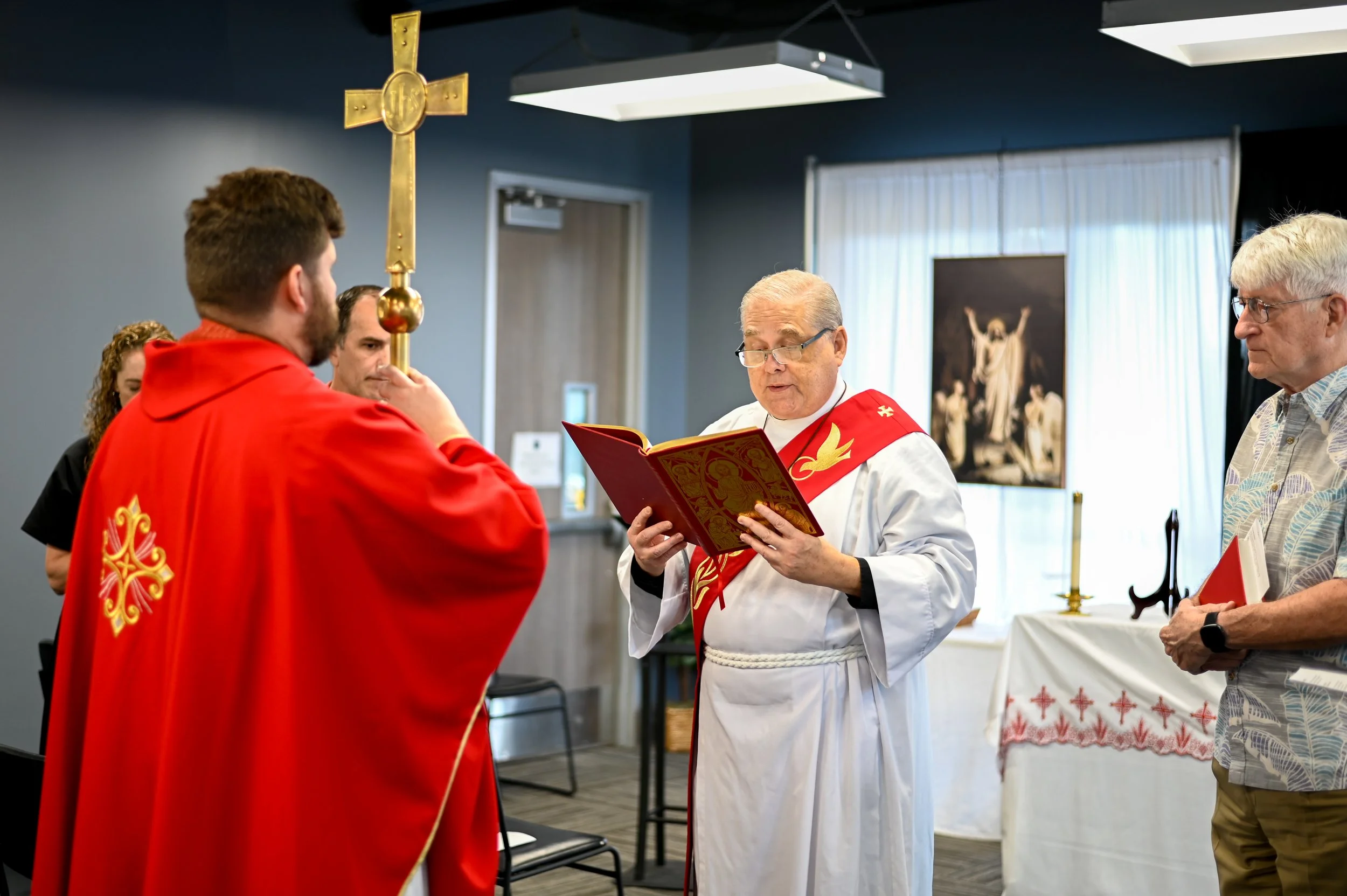
“Rupertus Meldenius… said, ‘In essentials, unity; in doubtful things, liberty; in all things, love.’ At its best, the Anglican Way embodies these three statements. There are things that are essential, and these are worth fighting for. There are things that are doubtful, opinions we can have honest disagreement about. But in all things, we must keep Jesus’ commandment to love one another at the heart of our conversations.”
- Thomas McKenzie, The Anglican Way
Anglicanism
St Patrick's Austin is a member of the Anglican Communion, which encompasses 85+ million people worldwide. Anglicanism originated during the English Reformation, but its roots extend back to the early Church, creating a unique blend of multiple Christian traditions.
First and foremost, to be Anglican is to be “simply Christian” and yet the Christian faith is rooted in real history and tradition, and so Anglicanism is the particular way we live out and embody the Christian faith.
The first missionaries came to the British Isles in the second century, and early Anglicanism was shaped mainly by the monastic and intellectual life of the church. The Reformation of the 16th century dramatically transformed the Anglican tradition by combining the influences of the patristic and medieval eras with the primacy of scripture and reformational views of grace.
Today it is the largest Christian body on earth outside of Roman Catholicism and Orthodoxy, with 85% of its adherents living in the Global South. Anglicanism is sometimes called the “via media” (middle way) between Roman Catholicism and Protestantism. Anglicans have retained the best of Roman Catholicism (liturgy, tradition, bishops, priests, and deacons) and Protestantism (the authority of Scripture and doctrine of justification). It has catholic, evangelical, and pentecostal expressions across the globe and is characterized by a sense of appreciation for the spectrum of Christian worship and spirituality.
We embrace the richness and diversity of Anglicanism, and St Patrick’s desires to showcase the catholic, evangelical, and pentecostal expressions of our tradition. We believe that the emphases on corporate spirituality, beauty, symbolism in worship, contemplation, and Christ’s true, real, and objective presence in Word and Sacrament. All these gifts of the catholic emphasis in Anglicanism are deeply needed and healing resources for a culture yearning for Truth, Beauty, and Good anchors in an ever-changing culture. We believe that the Protestant fervor for the primacy of Scripture is a necessary starting point for the Christian life, and we believe the pentecostal influence of prayer and equipping the saints of God for ministry allows us to be a church guided by the Holy Spirit.
Anglican Resources
Since the 16th century, Anglican worship has followed the pattern of The Book of Common Prayer. We gather together in person for Holy Eucharist each week, and we regard this as our most central and formative act of worship. Each day, either individually or in small groups, we are encouraged to pray two prayer services, Morning and Evening Prayer, collectively known as the Daily Office. These services shape our individual prayers and devotions by the patterns of corporate worship. If you want to learn more about The Book of Common Prayer or Anglicanism, we recommend the following resources:
Anglican Church in North America’s Book of Common Prayer (2019)
Anglican Church in North America’s To Be A Christian: An Anglican Catechism
Chapman, Mark. Anglicanism: A Very Short Introduction.



